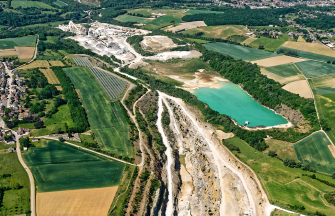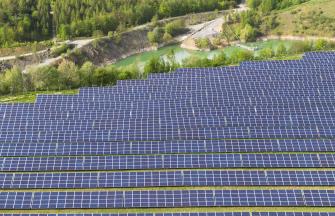
Embracing innovation to support our customers
At Carmeuse, we have a three-way innovation strategy. We develop new products to answer the needs of our customers while optimizing the efficient use of resources. Our innovation strategy is also based upon customized solutions. We develop services to address specific B2B clients’ needs, helping them to integrate new solutions, equipment or products into their processes. And finally, we invest to embrace the digital revolution to better serve our customers.
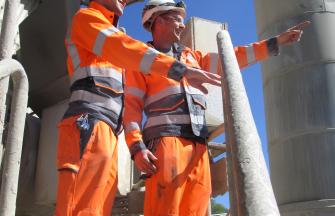
Developing new products
Our new limestone filler product replaces up to 20% of cement in concrete. The filler production doesn’t generate carbon emissions, apart from the energy needed to crush and mill the limestone (for which we are looking to use as much renewable energy as possible). Our filler reduces on average 20% of the CO2 emissions in the concrete production.
Our soil stabilization products (ViaCalco and Calciment) are spread in situ on fine clayey soils. Once mixed, it transforms these soils into solid and long-lasting road embankment materials.
As a result, the surface is stabilized without the need to remove earth and to fill it back up with aggregates, saving money, time and transport. On top of that, the injected product reabsorbs CO2 from the ambient air and so reduces the CO2 impact from the lime production. This product can also be mixed with other materials such as fly ash. This is an example of a pro-active waste management policy contributing to the circular economy.
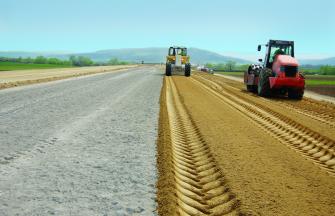
Another innovation is Hempcrete. Carmeuse has been active in the development of this new building material, which is gaining importance in the search for sustainable building materials.
Hemp absorbs carbon dioxide as the plant grows. And so does lime when exposed to the ambient air through carbonation. The combination of these two materials in Hempcrete reduces a building’s carbon footprint.
Its usage also results in low-energy houses, because hemp can absorb and hold heat (thermal mass) during sunny periods and releases it at night. Hempcrete also has other benefits such as acoustic isolation, is a fire retardant and it regulates the humidity in the building.
All these features make the daily lives of those living or working in this type of building more comfortable, and the building itself more climate-friendly.
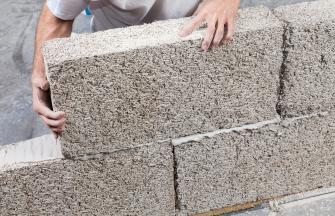
Digitalization
Carmeuse has developed a tool whereby artificial intelligence contributes to a much more efficient management of the lime production process. This optimizes energy efficiency and therefore reduces the carbon footprint. The CO2 gain is estimated at about 100.000 tons of CO2 yearly in our plants worldwide.
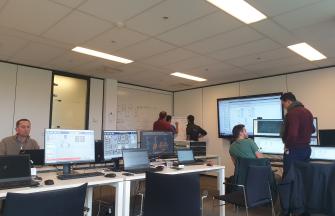
Tailored customer solutions
Lime is an essential and critical raw material for steel making. Without lime, no steel. It is a fluxing agent, lowering the melting temperature and purifying the steel to make it stronger. Lime is used at different steps in the process, but mostly in the phase of conversions of iron into steel.
We provide assistance to our key steel customers by providing the ‘Kiln expert system’, an assessment tool to optimize utilisation of our products.
This kind of customer service benefits lime quality and dosage in steel production, which can provide a significant cost reduction. Consequently, our steel customers reduce their overall carbon footprint as well.
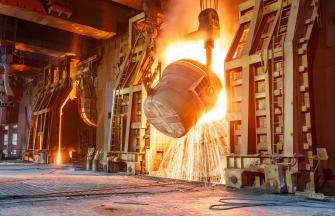
In the agricultural sector, we conduct soil analysis and for food, we even bring a disruptive approach of lime usage. Our subsidiary Agroforce in Europe performs a detailed GPS based survey and sampling of an entire agricultural field. This helps us to determine where the acidity of the soil needs to be improved with our TerraCalco. The use of
it allows for improvement of the soil, precision agriculture, absorption of CO2 and avoidance of chemical additives.
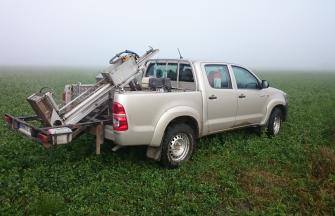
One of the environmental applications of lime and limestone is the cleaning of flue gases from, coal
fired power plants or incinerators. We remove each year more than 4 millions tons of acidic pollutants (SO2, HCL, HF) from industrial flue gases before their release in the atmosphere.
Industrial processes are rarely stable. Fluctuations impact the effectiveness of flue gas cleaning and can lead to non-optimized operations. If one does not keep a close eye on the parameters of this process, issues may appear much later, after impacting related operations (non-compliance, cost, ...).
This is why we’ve developed TuneIT, a module that shares selected parameters of the process with our data center. We’re able to notify the customer when a defined parameter deviates from the optimal value and can send a technical team to quickly return to optimal operations.
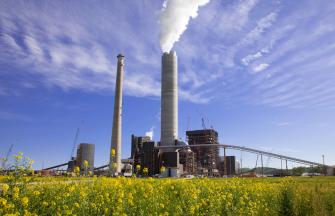
State of Play 2023
The Sustainability State of Play gives us a clear picture of where we are today, but also where and how we can do better.
We’ll continue to use our collective energy to achieve our purpose and to shape a sustainable future for our company and communities.
